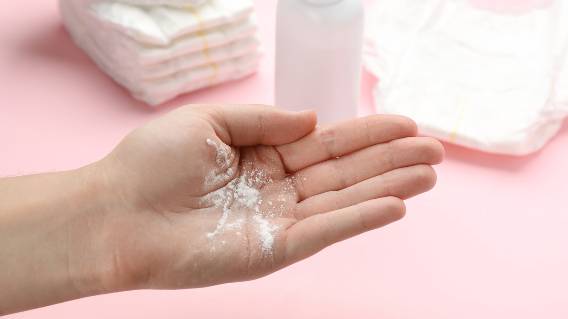J&J Sues Researchers Over Studies Linking Talc Products to Cancer
Editors carefully fact-check all Drugwatch.com content for accuracy and quality.
Drugwatch.com has a stringent fact-checking process. It starts with our strict sourcing guidelines.
We only gather information from credible sources. This includes peer-reviewed medical journals, reputable media outlets, government reports, court records and interviews with qualified experts.

LTL Management, a subsidiary of Johnson & Johnson, is suing doctors who released studies asserting that the company’s talc-based products can cause cancer. The lawsuits were filed in federal court in July. The legal action is seeking monetary damages plus a retraction and/or a correction about the study’s findings.
The suit names Dr. Theresa Emory and Dr. John Maddox, both pathologists affiliated with Peninsula Pathology Associates in Newport News, Virginia. It also cites retired pulmonologist Dr. Richard Kradin, who had worked at Massachusetts General Hospital Cancer Center. The three collaborated on the study, published in 2020 in the American Journal of Industrial Medicine.
Two months before this lawsuit, LTL sued Dr. Jacqueline Moline of Northwell Health in Great Neck, New York. In 2019, Moline published an article claiming that mesothelioma cancer can develop in those who used products containing talcum powder. The article stated that the 33 people in the study were exposed to asbestos-contaminated talc by Johnson & Johnson’s products.
LTL Management claims that some of the people in the study admitted coming into contact with asbestos by other means. LTL wants the identities of the patients revealed.
“This is an old tactic of J&J trying to squash scientific opinion through intimidation using its behemoth status,” attorney Mark Lanier told Chemistry World. Lanier represented 22 women in a successful talc lawsuit against Johnson & Johnson in 2018 and said he isn’t surprised by LTL’s latest legal action.
“This was done in the 1970s when scientists tried to warn about J&J’s talc containing asbestos,” Lanier said. “I think this shows a level of audacity, if not desperation.”
Suit Claims Researchers Had Financial Motives
LTL Management asserted the research behind the articles was based on “junk science” and said the findings created a “false narrative” about the safety of Johnson & Johnson’s products. It said the researchers behind the studies had financial motivations and earned what it called a “small fortune” by testifying in court as paid experts. LTL claimed both Moline and Kradin each made more than $3 million as plaintiff’s experts.
Jean Eggen, professor emerita of law at Widener University in Delaware, told Chemistry World that if LTL Management won the suit, it could set a potentially dangerous precedent.
“There is no doubt that these are aggressive tactics by LTL,” Eggen said. “If such cases were to succeed, it would leave virtually every expert open to claims of fraud whenever the opposing experts disagree or find fault with their opinions. This would have a chilling effect on expert testimony in toxic tort litigation.”
Moline has called LTL Management’s legal dispute an opportunity to “attack and silence” scientists. She also said she has an ethical obligation to protect the identities of those who took part in the research study.
Similar lawsuits were filed by LTL against the same researchers in December 2022, but were dismissed after being linked to the company’s first bankruptcy filing.
Johnson & Johnson’s Ongoing Legal Issues
Johnson & Johnson is facing thousands of talc lawsuits claiming its products were tainted with asbestos. The plaintiffs blame J&J’s products for causing mesothelioma and other diseases and cancers. J&J is continuing its attempts to resolve the cases through an $8.9 billion settlement.
In 2018, an investigation by Reuters News Agency found that Johnson & Johnson hid evidence of asbestos in its products for decades. The U.S. Food and Drug Administration also detected asbestos in contaminated talcum powder in nine of 52 cosmetic products the agency tested.
Asbestos and talc are naturally occurring minerals that form so closely together that the mining process may not separate them. Asbestos fibers can be inhaled and become trapped in the body. Over several decades, asbestos fibers can cause inflammation, scarring, asbestosis and cancer.
Johnson & Johnson continues to insist its baby powder and other talc-based products are not harmful. In May 2020, J&J stopped selling talc-based Johnson’s Baby Powder in the U.S. and Canada and switched to products that contain cornstarch.


